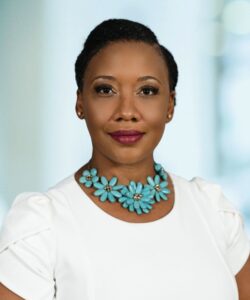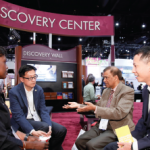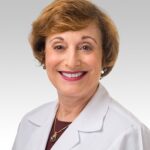Throughout her medical training, Noelle A. Rolle, MBBS, encountered many patients who were struggling not only with rheumatic disease, but with issues of health equity and access to care. This is one of the many reasons she was drawn to rheumatology.

Dr. Rolle
Dr. Rolle, assistant professor in the Division of Rheumatology and associate program director of the rheumatology fellowship, Medical College of Georgia, Augusta University, was born and raised in the Bahamas. While in medical school at the University of West Indies in Jamaica, she recalls being profoundly affected by young women who were diagnosed with lupus but had limited access to the comprehensive care that could be afforded by a rheumatologist. As a resident at Harlem Hospital, New York City, many of her patients did not have access to care for a variety of reasons, and social workers played a key role in their management. During her fellowship at the University of New Mexico, Dr. Rolle saw many Native American patients with severe illness whose disease course was advanced due to delays in access to care. After graduating, she worked in rural Georgia, where she saw firsthand the day-to-day struggles patients and community health providers faced due to limited access to rheumatologists.
These experiences attracted Dr. Rolle to volunteering and the ACR’s Collaborative Initiatives Committee (COIN). As a fellow, she previously served as a member and chair of the Fellow-in-Training Subcommittee of the Committee on Training & Workforce Issues. After serving as a member of COIN for the past three years, she has just begun a term as chair. She spoke with The Rheumatologist to discuss this exciting next step.
The Rheumatologist (TR): As you begin your term as chair of COIN, what goals will you be emphasizing?
Dr. Rolle: There are three main things that I want to do. One of them is to promote COIN and the work that’s been done thus far. There are a lot of people practicing rheumatology in underserved communities who could really benefit from the resources and support we offer. I also think there are members who would gladly volunteer in our initiatives if they were made aware of the opportunities available to them.
Second, as the third chair of this committee, I’m following in the footsteps of two stellar leaders and mentors—Sam Lim, MD, and Rosalind Ramsey-Goldman, MD. They’ve done an excellent job in establishing COIN and helping it flourish. I plan to continue that work alongside our hardworking staff and committee members, working to enhance our current projects and collaborate with other stakeholders—internal and external—to establish new projects aimed at improving rheumatic health equity.


